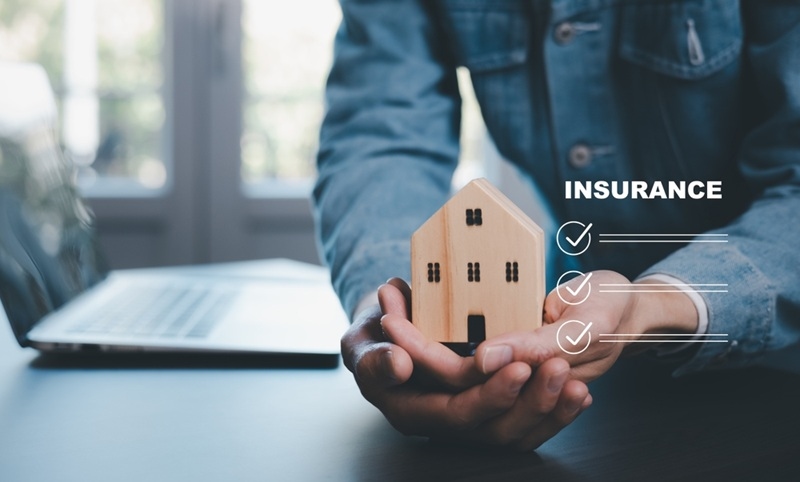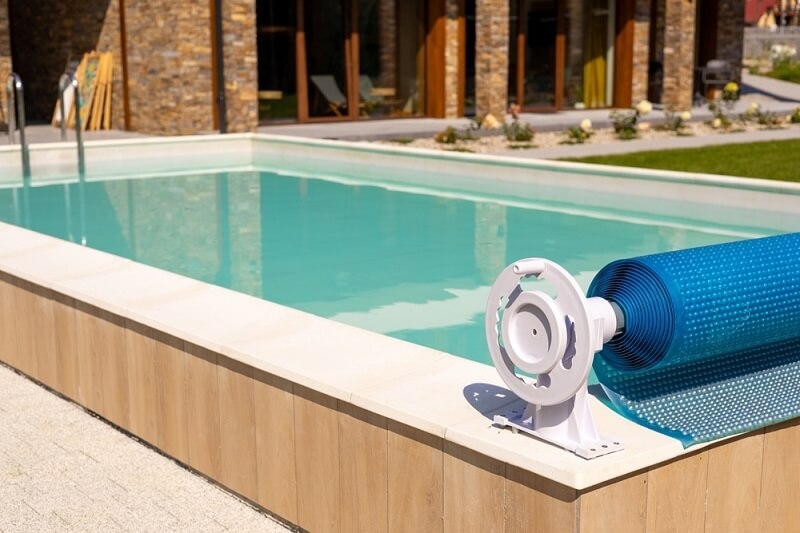Understanding the Different Types of Homeowners Insurance
Understanding the Different Types of Homeowners Insurance


Homeowners insurance is a type of insurance policy that provides financial protection to homeowners in the event of damage or loss to their property or personal belongings. It typically covers damages caused by natural disasters, theft, and other unexpected events. The policy typically covers the physical structure of the home, as well as personal belongings and liability protection in case someone is injured on the property. The amount of coverage and cost of the policy varies depending on the value of the home and its contents, as well as the location and level of risk associated with the area.
Homeowners insurance is an important investment for homeowners as it provides peace of mind and financial protection in the event of unexpected damage or loss.
Understanding the Different Types of Homeowners Insurance: Which One Is Right for You?

HO-1
Basic Form HO-1, also known as a basic form policy, is the most basic type of homeowners insurance. It typically covers damages caused by fire, lightning, windstorms, hail, explosions, riots, and theft. However, it may not cover other perils such as water damage, vandalism, or liability claims. HO-1 policies are rarely offered anymore and are not recommended due to their limited coverage.
HO-2
Broad Form HO-2, also known as a broad form policy, provides coverage for damages caused by all perils listed under HO-1, as well as additional perils such as falling objects, the weight of snow or ice, and accidental discharge or overflow of water or steam. HO-2 policies may have specific exclusions, so it's important to carefully review the policy to understand what is and isn't covered.
HO-3
Special Form HO-3, also known as a special form policy, is the most common type of homeowners insurance. It provides coverage for the physical structure of the home and personal belongings against all perils except for those specifically excluded in the policy. The policy typically covers damage caused by fire, theft, vandalism, windstorms, hail, lightning, and other common perils. However, it may not cover flood or earthquake damage, which requires separate policies.
HO-3 policies also include liability protection, which covers legal and medical expenses if someone is injured on the property. It's important to review the liability limits in the policy to ensure they are adequate to cover potential claims.
HO-4
Renters Insurance HO-4, also known as renters insurance, provides coverage for personal belongings and liability protection for individuals who rent a property. The policy does not cover the physical structure of the property, as this is the responsibility of the landlord.
Renters insurance typically covers damages caused by fire, theft, vandalism, and other common perils. It may also include additional living expenses if the rental property becomes uninhabitable due to a covered loss. Liability protection is also included to cover legal and medical expenses if someone is injured on the property.
HO-5
Comprehensive Form HO-5, also known as a comprehensive form policy, provides the most extensive coverage for both the physical structure of the home and personal belongings. It covers all perils except those specifically excluded in the policy. HO-5 policies typically have higher coverage limits than other types of policies, making them a good option for homeowners with expensive or unique possessions.
HO-6
Condo Insurance HO-6, also known as condo insurance, is similar to renters insurance in that it provides coverage for personal belongings and liability protection. However, it also covers the physical structure of the condominium unit, including any improvements made by the homeowner. The policy typically does not cover common areas of the building or the exterior of the property, as this is the responsibility of the condo association.
HO-8
Older Home Insurance HO-8, also known as older home insurance, is designed for homeowners with older homes that may not meet the requirements of modern construction standards. The policy typically covers damages caused by the perils listed under HO-1, as well as any additional perils agreed upon by the insurer and homeowner. HO-8 policies may have specific exclusions, so it's important to carefully review the policy to understand what is and isn't covered.
The Importance of Homeowners Insurance: Protecting Your Biggest Investment

Protects the Physical Structure of Your Home
Homeowners insurance provides coverage for the physical structure of your home, protecting it from unexpected damages or loss. This includes damages caused by natural disasters such as fires, floods, and earthquakes, as well as theft and vandalism. Without insurance, repairing or rebuilding your home could be a financial burden that can take years to recover from.
Covers Personal Belongings
Homeowners insurance also provides coverage for personal belongings, such as furniture, clothing, and electronics, that may be damaged or stolen. This coverage ensures that you can replace your belongings without having to pay out of pocket, which can be a significant expense in the event of a loss.
Provides Liability Protection
Homeowners insurance also provides liability protection, covering legal and medical expenses if someone is injured on your property. This can include slip and fall accidents, dog bites, and other incidents that can occur on your property. Without liability protection, you could be held personally responsible for these expenses, which can be financially devastating.
Covers Additional Living Expenses
If your home becomes uninhabitable due to a covered loss, homeowners insurance can also cover additional living expenses, such as a hotel or rental costs, until your home is repaired or rebuilt. This coverage can be critical in providing temporary housing and living expenses until your home is livable again.
Required by Mortgage Lenders
In most cases, mortgage lenders require homeowners insurance as a condition of obtaining a mortgage. This ensures that the property is protected in the event of a loss, which protects the lender's investment in the property. Without insurance, the lender may not be willing to provide financing for the property.
Provides Peace of Mind
Perhaps most importantly, homeowners insurance provides peace of mind. Knowing that you are protected in the event of an unexpected loss can provide a sense of security and peace of mind that cannot be quantified. It allows you to focus on enjoying your home and your life without worrying about the financial consequences of an unexpected loss.
Choosing the Right Homeowners Insurance Policy
Choosing the right homeowners insurance policy is critical in ensuring that you have the coverage you need to protect your home and personal belongings. When choosing a policy, consider the following factors:
- Coverage Limits: Ensure that the coverage limits in the policy are adequate to cover the cost of rebuilding your home and replacing your personal belongings.
- Deductibles: Consider the deductible amount in the policy and how much you can afford to pay out of pocket in the event of a loss.
- Perils Covered: Review the policy to understand which perils are covered and which are excluded. Consider whether additional coverage may be needed for specific perils, such as flood or earthquake damage.
- Liability Limits: Review the liability limits in the policy and ensure they are adequate to cover potential claims.
- Cost: Consider the cost of the policy and whether it fits within your budget. Be sure to compare quotes from multiple insurers to ensure you are getting the best value for your money.
Homeowners Insurance - Get a Fast and Free Quote

If you're a homeowner, protecting your property and your investment is essential. Homeowners insurance can provide the financial protection you need in the event of unexpected damages or loss. Getting a fast and free quote is the first step in ensuring you have the coverage you need to protect your home and personal belongings. Getting a quote for homeowners insurance is easy and can be done online or over the phone. When getting a quote, you'll need to provide some basic information about your property, such as its age, size, and location. You'll also need to provide information about your personal belongings and any additional coverage you may need, such as flood insurance.
Once you've provided the necessary information, you'll receive a quote that outlines the coverage and cost of the policy. It's important to review the policy carefully to ensure that the coverage limits, deductibles, and perils covered meet your needs. You may also want to consider additional coverage options, such as liability protection and additional living expenses.
Comparing quotes from multiple insurers is also important in ensuring that you get the best value for your money. Be sure to compare coverage limits, deductibles, and premiums from multiple insurers to find the policy that meets your needs and budget.
When choosing a homeowners insurance policy, it's important to remember that the lowest price may not always be the best option. While it may be tempting to choose a policy with a lower premium, it may not provide adequate coverage in the event of a loss. It's important to balance the cost of the policy with the coverage and protection it provides.
Conclusion
In conclusion, homeowners insurance is a crucial safeguard for homeowners, protecting their biggest investment from unexpected damages and loss. With the unpredictable nature of natural disasters and the risk of theft or liability claims, having a comprehensive policy in place can provide peace of mind and financial security. It's important to carefully consider the level of coverage needed and to understand the details of the policy, including any exclusions or limitations. By taking the time to research and choose the right homeowners insurance policy, homeowners can rest assured that they are protected in the event of an unexpected event.
FAQs
How much is homeowners insurance?
The cost of homeowners insurance varies depending on several factors, including the location and age of the home, the coverage limits, the deductible, and the insurance company. On average, homeowners insurance costs around $1,200 to $1,500 per year.
What does homeowners insurance cover?
Homeowners insurance typically covers damage to the home and other structures, personal belongings, liability protection, and additional living expenses. It can also provide coverage for perils such as fire, theft, and weather-related events. However, specific coverage can vary depending on the policy and insurance company.
Will homeowners insurance cover a rental property?
No, homeowners insurance is designed to cover the property that you own and occupy as your primary residence. If you're renting out a property, you'll need to purchase a landlord insurance policy to protect the rental property and any rental income.
Does home insurance cover flooding?
Homeowners insurance typically does not cover flooding. To protect against flood damage, you'll need to purchase a separate flood insurance policy. Flood insurance is available through the National Flood Insurance Program (NFIP) or through private insurers.
This content was created by AI



